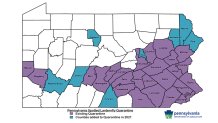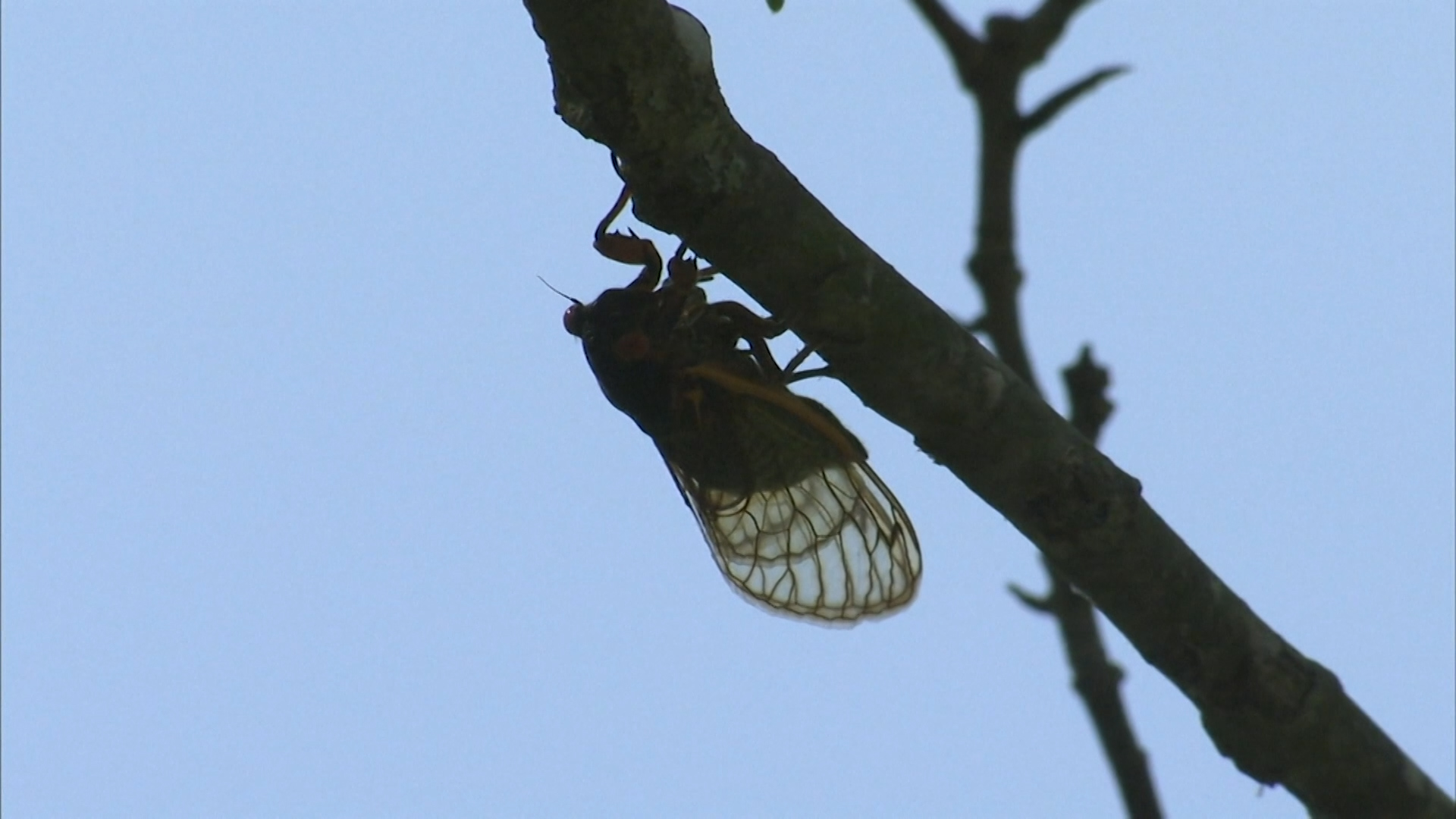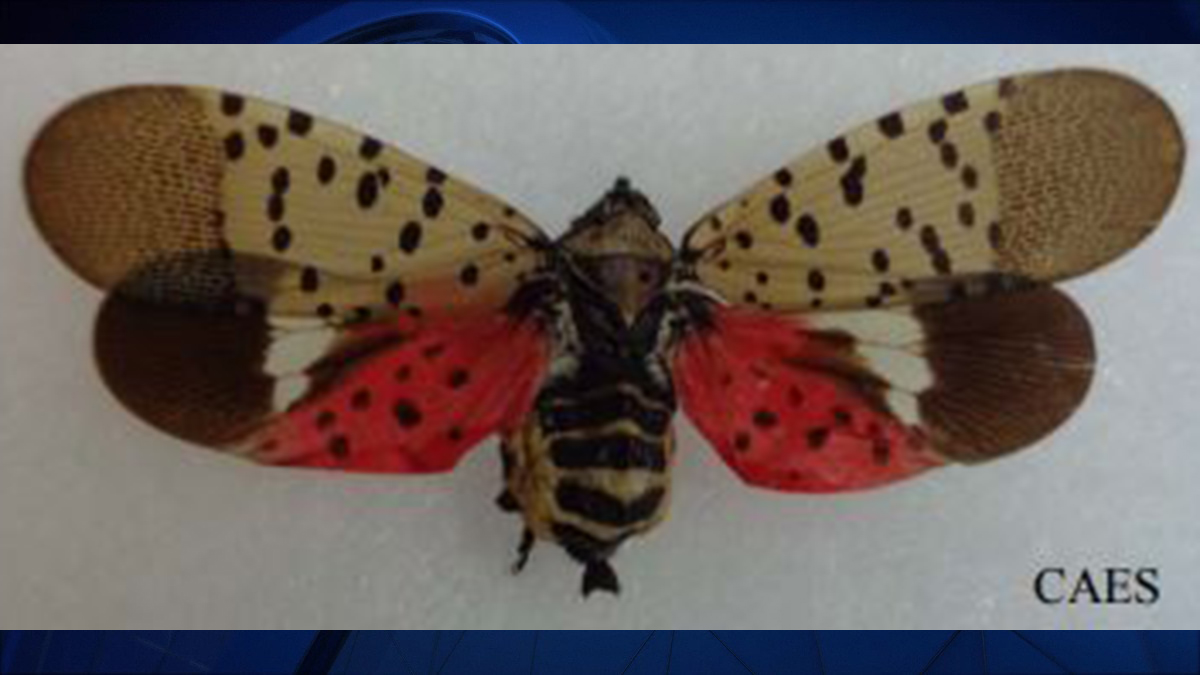EDITOR'S NOTE: This story was first published in June 2021.
Pennsylvania has enacted fines for businesses and other organizations that don't adhere to a quarantine in 34 counties meant to mitigate the spread of the spotted lanternfly, which the state's top agriculture official on Tuesday called "the worst bug."
A $300 fine would be given each time a violation is found related to work and travel in and out of the quarantined counties, which include all of southeastern Pennsylvania, officials said Tuesday.

Get Philly local news, weather forecasts, sports and entertainment stories to your inbox. Sign up for NBC Philadelphia newsletters.
"The spotted lanternfly is the worst bug in the commonwealth and capable of causing real damage to Pennsylvania’s $132.5 billion agriculture industry," Pennsylvania Agriculture Secretary Richard Redding said. "Over the past seven years, we’ve seen lanternfly travel from east to west in the commonwealth. We’ve seen vineyards devastated. It’s invasive environmentally, socially and economically."
Spotted lanternflies, or SLF as they are known for short, are an invasive species of insect that arrived in the United States from Asia in 2014. The first known sightings occurred in Berks County, 60 miles west of Philadelphia. It has since spread throughout much of Pennsylvania and into parts of New Jersey, New York, Delaware and Maryland. Projections on its spread over the next 30 years shows widespread expansion into New England, south toward Washington D.C. and west to Illinois.
More than 26,000 businesses and organizations have signed up for Pennsylvania's free permit to do work and travel in and out of the 34 quarantined counties while handling certain materials known to harbor lanternflies, Redding said.
The materials include:
The following are examples of regulated articles:
- Landscaping, remodeling or construction waste
- Logs, stumps, or any tree parts
- Firewood of any species
- Grapevines for decorative purposes or as nursery stock
- Nursery stock
- Packing materials such as pots, crates, pallets, etc.
- Outdoor household articles including recreational vehicles, tractors and mowers, grills and furniture and their covers, tarps, mobile homes, tile, stone, deck boards, mobile fire pits, any associated equipment and vehicles not stored indoors
For a full explanation of the state's new permits and regulations in response to the lanternfly quarantine, here is a link to the state Department of Agriculture's instructions.
Lanternflies have quickly adapted to the landscape in Pennsylvania and surrounding states since their arrival and have no natural predators here, causing they to multiply rapidly in the last seven years. They are attracted to some of the region's pay crops, and have devastated grapevines at wineries.
So far, after seven years of invasion and subsequent research, there is little good news to show for it, as scientists are still trying to determine how to stop the spread.
"Spotted lanternfly is a complex pest, but we are making discoveries and sharing those findings as soon as we can with the public and government and industry stakeholders,” Rick Roush, dean of Penn State University's College of Agricultural Sciences, said. “Our research objectives regarding the spotted lanternfly are clear — to find sustainable long-term solutions that are effective and environmentally safe."
The public's role is also clear: take heed when traveling to make sure you and your vehicle aren't giving any SLFs a free ride.



